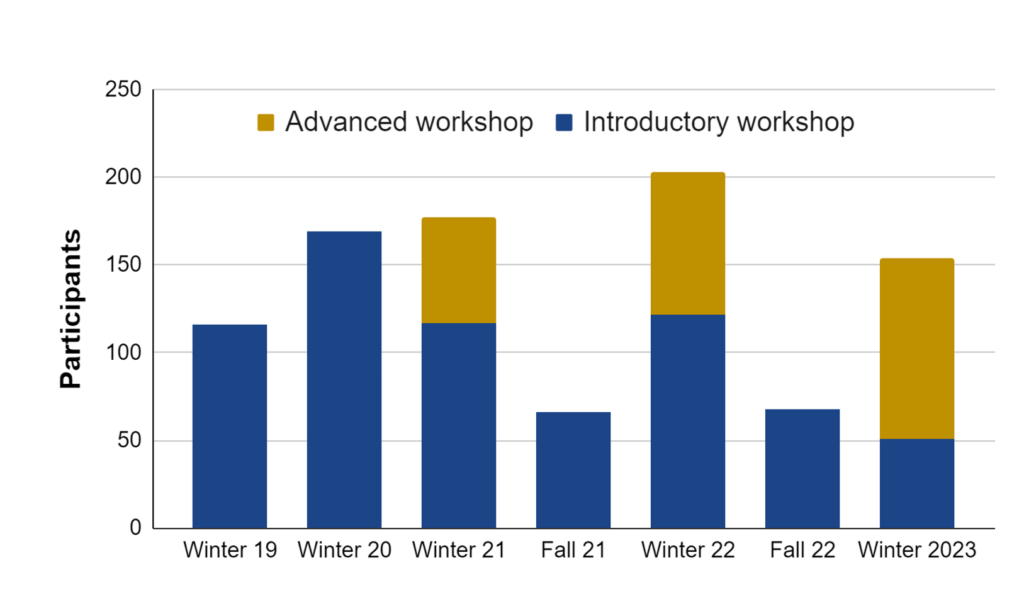Inclusive Teaching Training
The GSI/IA Inclusive Teaching Trainings are offered each Fall and Winter to Graduate Student Instructors (GSIs) and Instructional Assistants (IAs) supporting Computer Science and Engineering courses.
The trainings are part of the Computing CARES initiative to educate the teaching staff about barriers to success that students in their courses may face. They cover topics including imposter syndrome, stereotype threat, implicit bias and discuss privilege. In addition, they provide practical advice and foster group discussions on how to combat those barriers, specifically in the context of Computer Science education.
The Inclusive Teaching trainings launched in Winter 2019, and have been attended by many first-time and returning participants at each offering. Each year, Computing CARES organizes several sessions facilitated by pairs of experienced student instructors.

Over the years we have trained almost 800 graduate student instructors and undergraduate instructor assistants.
The INTRODUCTORY CSE Inclusive Teaching Workshop introduces topics of implicit bias, stereotype threat, impostor syndrome, and privilege. These workshops include brief small-group discussions on common CSE scenarios that GSIs/IAs may face in their courses. In addition, the workshops present specific challenges and solutions related to CSE’s hybrid teaching format. INTRO workshops are designed for GSIs and IAs who have not yet taken any CSE Inclusive Teaching Workshops in prior years. Participation is capped at 25 attendees per workshop.
As of Winter 2021, Computer CARES has launched Inclusive Teaching ADVANCED workshops, targeted toward individuals who have participated in prior CSE Inclusive Teaching Workshops. The advanced workshops provide a quick review of key concepts, and dedicate the majority of the session to the discussion of several scenarios and common challenges encountered in CSE courses (e.g., how to promote diversity and equality within teams carrying out course projects; how to address/respond to bias statements in course settings; how to work with students who may be facing difficult personal or home situations due to the pandemic; how to address news of incidents of gender harassment, etc.). To support engagement in this discussion-centered format, participation is capped at 15 individuals per workshop. The specific topics tackled by these workshops vary with each offering, thus they provide valuable discussion for returning students, as well as first takers.
The trainings have had participation by several lower division courses, with growing interest by upper division and graduate courses in Computer Science and Engineering. To date, these courses include: EECS183, EECS203, EECS280, EECS281, EECS370, EECS376, EECS390, EECS398, EECS445, EECS481, EECS482, EECS485, EECS493, EECS590, ENGR101 and ENGR151.

 MENU
MENU 
